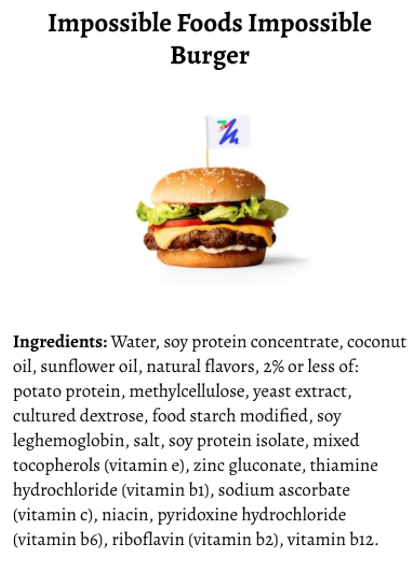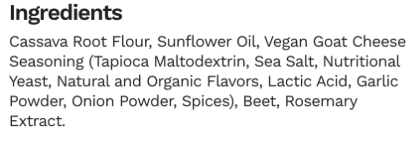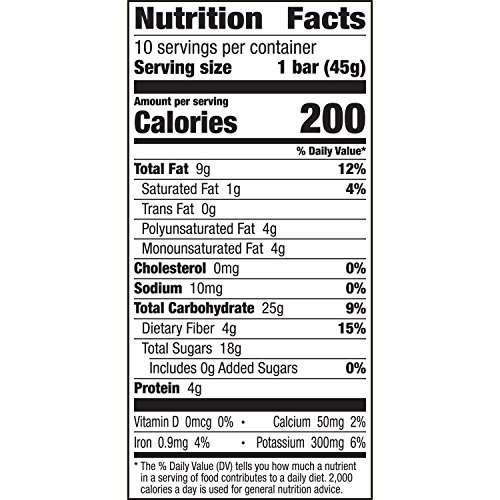Remember when mom used to sneak vegetables into your favorite meals just to get you to eat better?
Well, it turns out she may have been onto something.
These days you can’t walk through the grocery aisle or even Burger King without someone offering a plant based alternative to some of your favorite meals!
The plant based trend has been growing and growing and doesn’t show any sign of letting up in 2020.
Even the team that brought you the oozing like real meat Impossible burger is promising to be headed into your home kitchen some time in the new year.
But, like all other trends, you can be guaranteed that not all plant-based foods are what they claim to be!
While I can certainly get on board with the idea that we should all eat less meat (especially unhealthy cuts of meats or sausage), some of the new plant based products flooding the market may do little to improve your health – let alone improve the environment or save you money!
Now, just so I am being absolutely clear. I support eating a plant based diet that is rich in fresh fruits and vegetables, legumes and nuts.
There are a number of benefits to eating a plant based diet including:
- A clear path to healthy weight loss
- Reduced inflammation in the body which can reduce chronic conditions such as diabetes, heart disease, cancer and more
- Improved mood and energy
And so many more.
But when it comes to plant-based food, not all foods are alike.
The food industry has exploded with a variety of products ranging from prickly pear teriyaki jerky to vegan cookie dough to plant snacks beets with goat cheese cassava root chips (???)
It all sounds good, but it can be hard to know if what you’re eating is truly healthy.
Take for example the flood of “meat” plant based products. With the Impossible Burger leading the way, marketers promise that the texture and taste of the products have improved so much that they actually mimic real meat.
And while those who have given up red meat for health reasons might be jumping for joy to have a tasty alternative, if you take a closer look at what is actually inside the burger . . . it might not be worth a bite.
Here’s a quick snapshot of the ingredients in an Impossible Burger:
At first glance you might be tempted to tell yourself that it doesn’t seem so bad (after all, you can read most of the ingredients), but the Impossible Burger contains things like “natural flavors” (what exactly does that mean??), starches and a ton of sodium.
The Impossible Burger is also made from GMO soybeans and other genetically engineered materials. Additionally it is lower in protein than beef so, when it comes down to it, I wouldn’t call the Impossible Burger a “healthy food”.
And to be clear, the Impossible Burger is not alone when it comes to its health grades. The plant-based meat industry has long struggled to come up with a balanced product that isn’t overly processed or contains a long list of unnatural ingredients.
Turning to snack food, the biggest problem I see in the plant-based snack aisle is that most foods are overly processed and again – contain several suspect ingredients.
But there are a few that might just make the grade if you’re looking for a quick crunchy snack!
Let’s start with the popular Terra real vegetable chips (original flavor). Now, I’ll definitely say these are better than your average chip and it’s always a good sign when the vegetable is the first ingredient.
Siete Chips- a better choice
And if you look at the nutritional panel of these chips, you’ll notice that they are lower in sodium in most chips, low in sugar and low in saturated fats. Not bad!
When it comes down to it, this isn’t a bad chip. But they also don’t contain a ton of nutrients or minerals that you need to support a healthy diet – so while I can say that these might be better than some, they are still not a “health food.”
Turning now to those Plant Snacks, Beet with Goat Cheese Cassava Root Chips.
Again, at first glance, these chips don’t look so bad. Like Terra chips they are lower in sodium, sugar and saturated fats than most chips, but they still contain ingredients that are suspect – natural flavors and seasonings.
My preference, of course, is that my clients avoid anything that’s in a bag and that if you’re craving something crunchy that you make your own veggie chips or kale chips, but if you’re going to grab something – these are better than most.
Now, you might be wondering, what about all the plant-based snack bars that take up almost an entire half-aisle at the grocery store. . . are those healthy?
If we’ve met or ever had a conversation, then you know that I don’t believe that ANY of the bars available to the general public are very healthy.
They all claim to be packed with protein, reduce sugar and do it all from plants!
But here’s the truth.
Originally touted as an energy bar for athletes, snack bars have become replacements for the afternoon cookie – and in many cases it may be equally bad for you.
The key is to look at the ingredients and see what’s really inside.
Many of the bars on the market still contain too much sugar, artificial colors and flavors or processed ingredients – so you have to be wary.
Let’s take a look at one or two so you can see what I mean.
Consider the Larabar. Larabar creates a variety dessert-worthy sounding snack bars with few ingredients. They pride themselves in creating something with few ingredients and being a healthier alternative to snack bars.
Here’s a snapshot of the Apple Pie Larabar:
As promised, the Larabar has all natural ingredients without any added fillers, preservatives or added sugars.
The problem? It’s still higher in sugar, calories and lower in protein than I would hope (it’s always good to remember that a Krispy Kreme donut has 10 grams of sugar per serving!!).
Most so-called plant-based energy bars struggle in a similar way. They may be a good source of fiber and bet a better alternative to the chocolate chip cookie, but they are a bit of a glorified “health food”.
So, what do you do? How do you decide what you should eat?
As always, I recommend going directly to the source.
Rather than reaching for a lara bar, you might instead choose to grab a handful of nuts and eat a piece of fruit – you’ll get the side benefit of adding real nutrients, vitamins and minerals that might be missing when you grab a prepared bar (or chip).
You can also decide to make your own energy snacks and store them so that they’re readily available when you want them.
I know that it takes planning and experimentation, but I often use Sundays to batch cook and make foods like this that I can grab quickly when my schedule gets busy.
Plus, they often end up tasting so much better and contain way less sugar!
In order to help you get started, I’ve included a couple of my favorite recipes below for you to try out! I promise it’s a lot easier than you think and your whole family will love them!
Plant based eating can be extremely beneficial for so many of us, but as always you have to engage smartly – read labels, avoid processed foods and when you can, eat whole foods.
Happy snacking!
In good health,
Meryl
Recipes:




